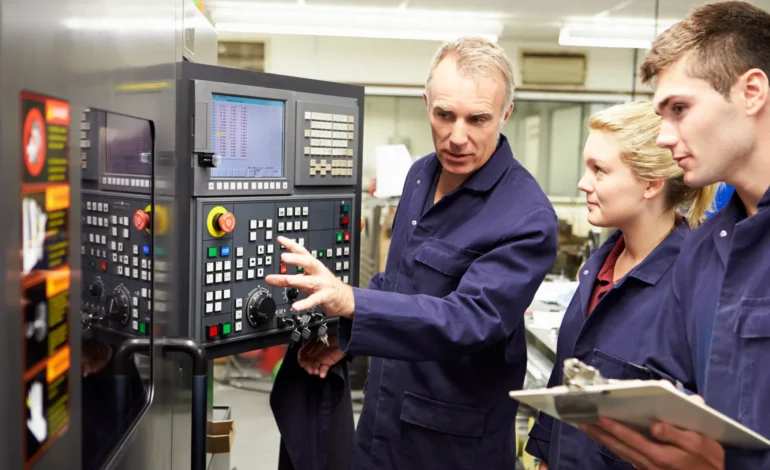How to Transition from Seasonal to Permanent Work in Poland

The allure of seasonal work in Poland, particularly in sectors like agriculture, tourism, and construction, is undeniable. It offers immediate income and a taste of Polish culture. However, relying solely on seasonal employment leaves you vulnerable to economic fluctuations, limited career growth, and a lack of crucial social benefits. This article argues that while seasonal work can be a starting point, transitioning to permanent employment is essential for securing a stable and prosperous future in Poland. We will explore the advantages of permanent contracts, the skills you need to cultivate, and the strategies to effectively navigate the Polish job market towards long-term stability.
Secure Your Future: Why Seasonal Roles Aren’t Enough in Poland
Seasonal work, by its very nature, is precarious. It provides only temporary income, leaving you constantly searching for the next opportunity. This instability makes long-term financial planning, such as purchasing a home, saving for retirement, or even securing a reliable loan, virtually impossible. The lack of consistent income creates a cycle of uncertainty that hinders personal and professional development.
Furthermore, seasonal roles rarely offer benefits like health insurance, paid time off, or retirement plans, which are standard in permanent positions. This means you are entirely responsible for your own healthcare costs, time off, and future financial security. A single unexpected illness or injury could wipe out your savings and leave you financially vulnerable. This lack of social safety net is a significant disadvantage compared to the protections afforded to permanent employees.
Finally, relying on seasonal work limits your career advancement potential. Seasonal roles often involve repetitive tasks with little opportunity for skill development or promotion. Without a stable job history, employers may be hesitant to consider you for higher-paying, more challenging permanent positions. Building a career requires consistent experience and demonstrated commitment, something seasonal work inherently lacks.
Polish Labor Law Favors Permanent Employment: Leverage it
Polish labor law provides significant protections and benefits to permanent employees, making it a far more desirable status than temporary or seasonal work. Permanent contracts offer job security, protecting you from arbitrary dismissal and providing a framework for fair treatment in the workplace. Employers are legally obligated to provide reasons for termination and follow specific procedures, offering a level of security absent in seasonal arrangements.
Beyond job security, Polish labor law mandates a range of benefits for permanent employees, including paid vacation days, sick leave, and maternity/paternity leave. These benefits are crucial for maintaining a healthy work-life balance and providing support during important life events. Seasonal workers rarely have access to these entitlements, placing them at a distinct disadvantage in terms of overall well-being and financial security.
Furthermore, permanent employees in Poland are entitled to mandatory social security contributions from their employers, contributing to pensions, unemployment benefits, and access to healthcare. This social security system provides a critical safety net, ensuring that you have access to essential services and financial support in times of need. Seasonal workers often miss out on these crucial contributions, potentially jeopardizing their long-term financial stability and access to vital social services.
Showcasing Long-Term Value: Skills that Demand Permanence
Transitioning from seasonal to permanent work requires demonstrating your value as a long-term asset to potential employers. This means focusing on developing skills that are in high demand and relevant to the Polish job market. Technical skills, such as IT proficiency, data analysis, or specialized manufacturing expertise, are consistently sought after and can significantly increase your chances of landing a permanent position.
Beyond technical skills, soft skills are equally important. Employers value candidates who possess strong communication, teamwork, problem-solving, and leadership abilities. Demonstrate these skills through volunteer work, participation in community projects, or involvement in professional organizations. Highlighting your ability to collaborate effectively, adapt to new situations, and take initiative will set you apart from other candidates.
Finally, focus on acquiring industry-specific certifications or training that demonstrate your commitment to professional development. Research the skills and qualifications that are highly valued in your target industry and invest in acquiring them. This proactive approach shows employers that you are serious about building a career in Poland and are willing to invest in your own growth and development.
Networking is Key: Unlocking the Permanent Job Market
The Polish job market, like many others, relies heavily on networking. Building connections with professionals in your desired field can open doors to opportunities that may not be publicly advertised. Attend industry events, job fairs, and workshops to meet potential employers and learn about available positions. Actively engage in conversations and demonstrate your enthusiasm and interest in their company or industry.
Utilize online platforms like LinkedIn to connect with professionals in your target field and join relevant industry groups. Share your experiences, participate in discussions, and build relationships with potential mentors or employers. A strong online presence can significantly enhance your visibility and increase your chances of being noticed by recruiters.
Don’t underestimate the power of personal referrals. Reach out to friends, family, or acquaintances who work in your desired field and ask for introductions or advice. A personal recommendation from a trusted source can carry significant weight with employers and significantly improve your chances of securing an interview.
Polish Language Proficiency: A Must-Have for Permanent Roles
While some seasonal jobs may not require fluency in Polish, mastering the language is essential for securing a permanent position and integrating fully into Polish society. Employers are far more likely to hire candidates who can communicate effectively with colleagues, clients, and supervisors in Polish. Language proficiency demonstrates your commitment to living and working in Poland and significantly enhances your employability.
Invest in Polish language courses or find a language exchange partner to improve your skills. Focus on developing both your conversational and written Polish, as both are crucial for success in a professional environment. Practice speaking Polish as often as possible, even if it feels uncomfortable at first. The more you practice, the more confident you will become.
Furthermore, understanding Polish culture and business etiquette is crucial for building strong relationships with colleagues and clients. Familiarize yourself with Polish customs, communication styles, and expectations in the workplace. This cultural awareness will demonstrate your respect for Polish culture and help you build rapport with your colleagues.
Investing in Your Future: Education & Permanent Job Security
Investing in your education and professional development is one of the most effective ways to secure permanent employment and long-term job security in Poland. Consider pursuing a degree, diploma, or vocational training program that aligns with the skills and qualifications demanded by employers in your target industry. A formal education provides you with a solid foundation of knowledge and skills, making you a more attractive candidate for permanent positions.
Continuously seek opportunities to enhance your skills and knowledge through workshops, seminars, and online courses. Staying up-to-date with the latest trends and technologies in your field will make you a more valuable asset to your employer and increase your chances of career advancement. Lifelong learning is essential for maintaining your competitiveness in the ever-evolving job market.
Finally, consider pursuing professional certifications that demonstrate your expertise in a specific area. Certifications validate your skills and knowledge, providing employers with tangible evidence of your capabilities. Research the certifications that are highly valued in your industry and invest in acquiring them. This proactive approach demonstrates your commitment to professional excellence and enhances your credibility as a candidate for permanent employment.
Transitioning from seasonal to permanent work in Poland requires a strategic approach and a commitment to personal and professional development. By understanding the benefits of permanent employment, leveraging Polish labor law, developing in-demand skills, networking effectively, mastering the Polish language, and investing in your education, you can significantly increase your chances of securing a stable and prosperous future in Poland. Don’t settle for the uncertainty of seasonal work. Take control of your career and invest in your long-term success.











